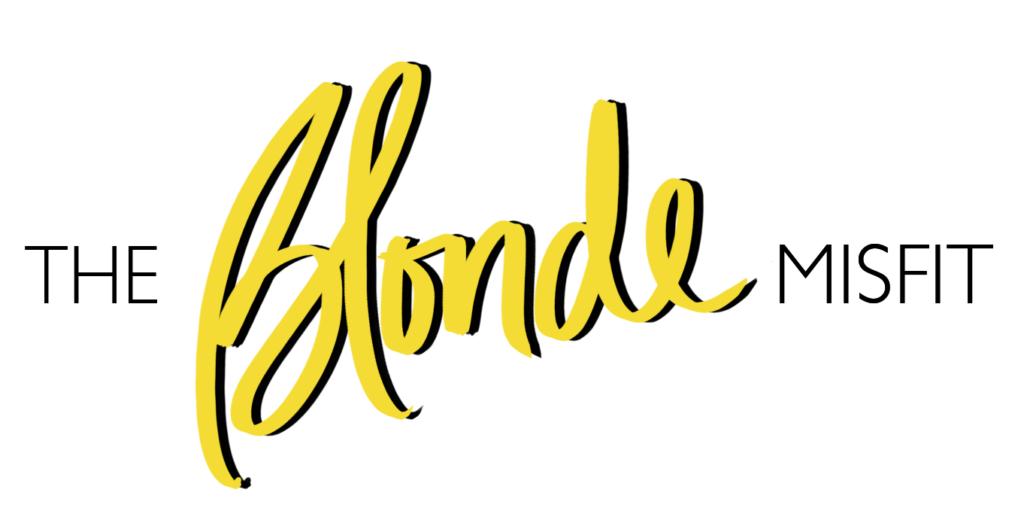Vanessa K. De Luca is currently the editor-in-chief of Zora publication, a media entity under Medium that focuses on the storytelling of women of color. Recently we spoke about her career, creating a safe space for Black women in publishing, and the power of doing the work.
Listen to our podcast episode on Theblondemisfit podcast.
Her beginnings:
“You know, it’s interesting, I was actually a career changer. So I didn’t start out in journalism, in fact, never worked for my school newspaper, never, you know, did any kind of like magazines in college, and none of that stuff. I was into retail, I was into fashion, I wanted to be a fashion buyer. And so that was the first half of my career. Well, I’d say for seven years, I worked in retail as a sales manager and assistant buyer in product development. And all the time that I was doing this, these things I felt just a little twinge of, ‘I’m not exactly where I want to be’. I’m not exactly where I think I need to be. And so I was able to, after some time, make a decision to basically start all over, start from scratch. And I went to NYU’s summer publishing Institute. They had a job fair at the end of it, and I was able to meet some people from Conde Nast. And that’s how I got my first job in journalism as an editorial assistant at Glamour magazine.
I was basically starting from scratch. I had to go down to a lower salary. I had to move back in with my parents. I had to readjust kind of everything and my whole lifestyle to be able to pursue something that I thought was worthwhile, which was working in magazine publishing. And fortunately, the woman that I ended up working for, also was very open-minded and a career changer as well. So she understood a little bit of what my journey had been. And she was willing to give me a chance and give me an opportunity. And I so appreciated that.”
Her perspective of starting over:
“I definitely felt convicted — I felt that this was something that I had to do. But I’ve always been the kind of person to say, I can look at a situation or a potential opportunity and say, How do I present myself in the best way possible? What kind of this is where the storytelling comes into play? Like, what is the narrative around me? My assets, what I bring to the table? And how do I use that, to convince someone else that they should be willing to take a chance on me? And I think that we all have that ability because we all have skills and talents. And we just have to kind of figure out how you create that storyline that you can then share over and over again, with authenticity, and have people really relate to it and connect to it.”
On people doing the work:
“I think what’s hard is that in society, now, we see so many people getting that instant gratification. And I think it gives you a false sense of what reality actually is like. And that’s unfortunate because you want to be able to do the work and build a strong foundation so that you’re ready for your next step when that next opportunity knocks on the door. If you skip over some aspects of the work, then you may not be as ready as you think you are when that next opportunity comes. And that’s unfortunate. Because all it takes is being committed and being willing to learn, and to watch and observe and to contribute. Those are things that you’re going to have to do throughout your entire career. And so learning that at the very beginning, I think, is the most important thing that you can do to make sure that you’re going to have a great credible experience in the career world.”
Her work at Zora:
“I think that the advantage that Zora has, being a part of Medium. Medium does not accept advertising. It’s a subscription-based business model. So you don’t have to have those same concerns as you do in some more mainstream publications where you may not consider covering a certain story, because it’s a little controversial, and an advertiser may not want to be next to that story. We don’t have those same considerations. So it gives us a lot of freedom and leeway, and runway to tell stories more authentically without worrying about that kind of censoring ourselves or, you know, alienating an advertiser. That’s the one thing but I also think that what Zora has carved out is a special space where all women of color, not just black men, and that all women of color, can come together and share their stories, express the challenges that they face as women of color, but also celebrate the triumphs and celebrate the moments that bring us joy, and that makes us feel good, celebrate our contributions to culture, which too often are pushed to the side or sidelines, and to recognize and chronicle what things we have done to make the world to put our own personal stamp on the world. And that’s what I think sort of brings to the table much like in the spirit of Zora Neale Hurston, who we’re named after, you know, it’s this is a publication that is unapologetic about what women of color bring to the table. And we embrace it, and I think that’s what makes it different and special.”
